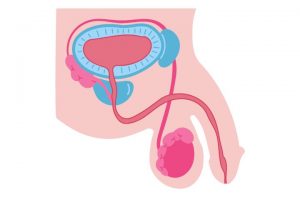Male infertility is a significant issue that affects millions of men globally, and while often overlooked, it can cause emotional stress and impact relationships. Fortunately, with advances in medical science, infertility in men is increasingly being diagnosed and treated successfully. If you or your partner are facing infertility concerns, understanding how andrologists address male infertility can help you find the right path toward diagnosis and treatment.
At EROS Clinic, a leading men’s health clinic, we specialize in addressing male infertility through a comprehensive approach involving advanced diagnosis, tailored treatments, and expert care. Our experienced andrologists and sexologist doctors are dedicated to helping men overcome infertility challenges and achieve their dream of fatherhood.

What is Andrology and How Does it Relate to Male Infertility?
Andrology is the branch of medicine that focuses on male health, specifically the male reproductive system and its associated disorders. Andrologists specialize in diagnosing and treating conditions related to male infertility, sexual dysfunction, and hormonal imbalances.
Male infertility can stem from several factors, including low sperm count, poor sperm quality, hormonal imbalances, or even anatomical abnormalities. The role of an andrologist is crucial in identifying the underlying cause of infertility through detailed assessments and offering personalized treatment options.
Step 1: Diagnosis of Male Infertility by Andrologists

Diagnosing male infertility is a multi-step process, and the first crucial step is a thorough consultation with an andrologist. The doctor will review the patient’s medical history, lifestyle factors, and any relevant family history of infertility. The next step is a physical examination to identify any obvious abnormalities in the reproductive organs.
A key part of the diagnosis process is semen analysis, a vital test that helps andrologists assess sperm health. Semen analysis measures the following:
-
Sperm count: The number of sperm present in a given sample. A low sperm count (oligospermia) may indicate infertility.
-
Sperm motility: The ability of sperm to move effectively. Poor motility (asthenozoospermia) can hinder sperm from reaching and fertilizing the egg.
-
Sperm morphology: The shape and structure of sperm. Abnormal sperm morphology (teratozoospermia) may impact the chances of fertilization.
-
Semen volume: The total amount of semen present in a sample. Low semen volume can be indicative of issues with the prostate or seminal vesicles.
-
pH level: A very alkaline or acidic pH in semen can affect sperm function.
In addition to semen analysis, andrologists may recommend further tests such as hormonal evaluations (to check for imbalances in testosterone, thyroid, and other hormones), genetic testing, or imaging studies like scrotal ultrasounds to detect varicoceles or blockages in the reproductive system.
Step 2: Treatment Options for Male Infertility
Once the cause of infertility is identified, andrologists recommend a personalized treatment plan based on the patient’s condition. Treatment for male infertility may involve one or more of the following approaches:
1. Medications:
If hormonal imbalances are identified, medications can help regulate hormone levels, thereby improving sperm production. For example, clomiphene citrate, a medication often used in women, can help stimulate sperm production in men with low testosterone levels. Additionally, antibiotics may be prescribed if an infection is found to be affecting sperm health.
2. Lifestyle Changes:
Lifestyle factors such as diet, exercise, smoking, alcohol consumption, and stress levels can all impact sperm health. Andrologists often advise patients to adopt healthier habits, including eating a balanced diet, exercising regularly, avoiding excessive alcohol, quitting smoking, and managing stress effectively.
3. Surgery:
If an anatomical issue is discovered, such as varicocele (swollen veins in the scrotum) or blockages in the vas deferens (the tube that carries sperm), surgery may be necessary. Varicocelectomy is a common surgery performed to correct varicoceles and improve sperm quality and count. Surgical procedures may also be required to repair blockages that prevent sperm from being released during ejaculation.
4. Assisted Reproductive Technology (ART):
For couples with severe infertility issues, ART techniques like intrauterine insemination (IUI) and in vitro fertilization (IVF) may be recommended. In some cases, if sperm count is low, intracytoplasmic sperm injection (ICSI), which involves injecting a single sperm directly into an egg, may be used.
5. Sperm Preservation:
In some cases, sperm quality may fluctuate over time due to factors such as age, medical treatments (e.g., chemotherapy), or lifestyle changes. Sperm preservation (cryopreservation) allows men to store sperm for future use, providing an option to preserve fertility in the event of health issues that may impact sperm production.
Step 3: Role of Sexologist Doctors in Male Infertility Treatment

In addition to an andrologist, sexologist doctors play an essential role in treating male infertility, especially when it involves psychological or sexual health issues. Infertility can often cause emotional distress, anxiety, and relationship problems. A sexologist doctor helps address any psychological factors that may be contributing to infertility, such as stress, performance anxiety, or issues related to sexual dysfunction.
Sexologists work closely with men to enhance their overall sexual health and relationship dynamics, ensuring that psychological barriers are addressed while improving fertility outcomes. Additionally, sexologists may offer advice on optimizing sexual timing and techniques to increase the chances of conception.
Sperm Health and Its Importance
Sperm health is a key factor in male fertility. Sperm are microscopic cells, and their ability to swim (motility), their shape (morphology), and their overall count directly affect the chances of conception. Sperm health can be influenced by many factors, including:
-
Diet: Nutrient-rich foods like fruits, vegetables, nuts, and seeds can boost sperm health.
-
Exercise: Moderate physical activity promotes better circulation and hormone balance.
-
Avoiding Toxins: Exposure to environmental toxins, excessive heat, and radiation can negatively impact sperm quality.
-
Reducing Stress: Chronic stress can interfere with hormone production and sperm quality.
Conclusion
Male infertility is a multifaceted issue that requires a comprehensive and individualized approach to diagnosis and treatment. Andrologists play a critical role in addressing male infertility, using advanced diagnostic tools like semen analysis to evaluate sperm health and pinpoint underlying causes. Through medications, lifestyle changes, surgery, or ART, andrologists can provide targeted treatments to improve fertility outcomes.
At EROS Clinic, we are committed to providing men with the care they need to overcome infertility. Our expert andrologists and sexologist doctors work closely with patients, ensuring a holistic approach to male infertility treatment. If you are experiencing infertility challenges, we invite you to contact us and take the first step toward improving your fertility health. Visit our website EROS Clinic to learn more about how we can help you achieve your goals of parenthood.

